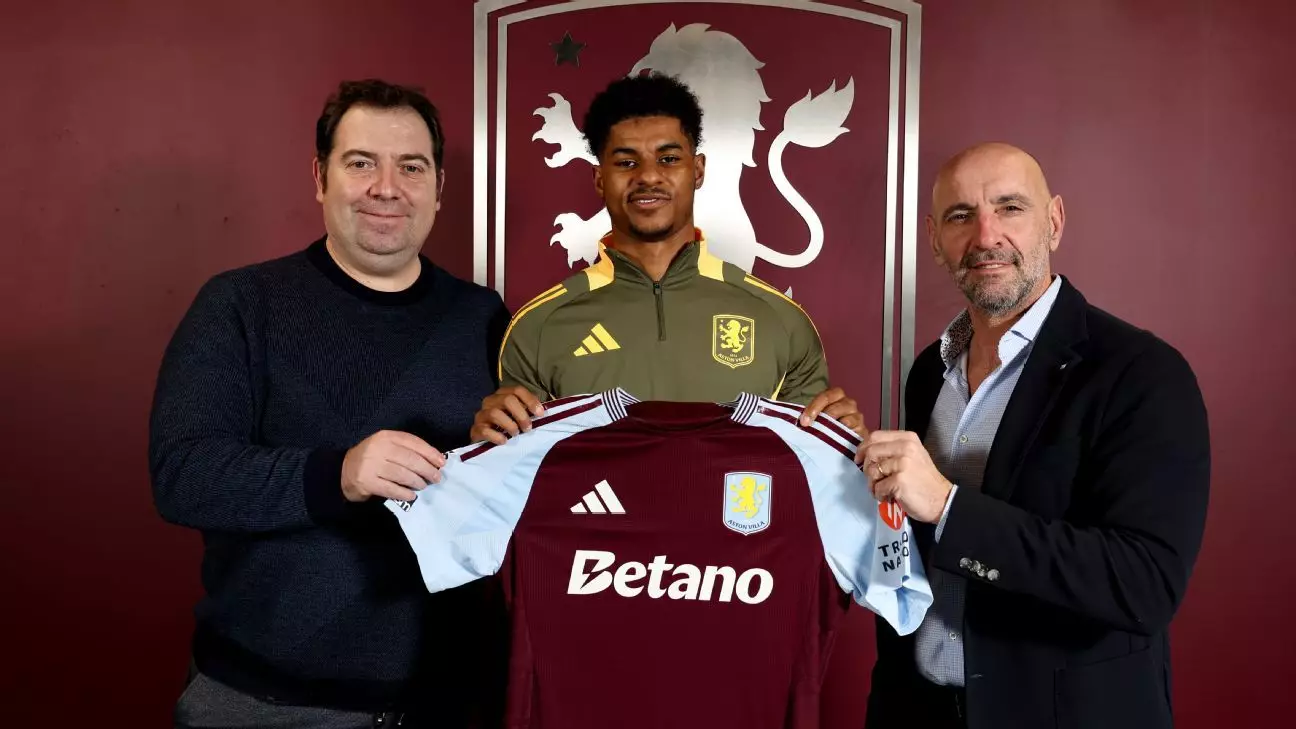In a significant turn of events, Marcus Rashford, the England international and once-prominent striker for Manchester United, has taken a leap into a temporary new environment by joining Aston Villa on loan until the season’s end. This decision has put an end to speculation surrounding his future amidst a tumultuous period at Old Trafford. With Villa covering a significant portion of Rashford’s wages and incorporating performance bonuses into the deal, the implications of this move extend beyond immediate gameplay, signaling not only a new start for Rashford but also highlighting the strategic maneuvers of both clubs involved.
Rashford’s time at Manchester United had become increasingly strained. Following a promising season where he netted 30 goals, his performance had declined, reflected in his absence from the team and concerns voiced by head coach Ruben Amorim regarding his commitment during training sessions. These challenges reached a boiling point, with Amorim openly suggesting he would prefer using the team’s goalkeeper coach over Rashford, illustrating a significant drop in the player’s standing within the squad.
This scenario, juxtaposed with Rashford’s expressed desire for a “new challenge,” signifies that the move to Villa was not merely a transaction but also a necessary step for personal and professional revitalization.
Aston Villa, under the guidance of Unai Emery, has demonstrated an evolving squad with aspirations for European competition. Rashford’s arrival adds considerable experience and goal-scoring potential to their attack, particularly following Jhon Durán’s exit to Al Nassr. The timing of Rashford’s transfer could not be more critical, as Villa looks to bolster their roster in the Champions League round of 16. His history in high-pressure matches will undoubtedly be invaluable as Villa seeks to advance.
The integration of a player like Rashford into the team dynamics could also inspire growth among younger talents within Villa’s ranks. His journey from academy graduate to England international serves as a testament to what perseverance and hard work can achieve. Thus, this loan not only benefits Rashford but also positions Villa as a serious contender in the Premier League landscape.
As Rashford shared his thoughts on Instagram, expressing gratitude to both United and Villa, the emotional undercurrents of the move emerged. It is evident that he holds fond memories of his time at Manchester, but the pull to contribute to a team poised for greater success appears to outweigh any hesitations. Such reflections encapsulate more than a simple career decision; they echo the aspirations of many players destined for greatness but encountering setbacks.
If Villa opts not to exercise their option to make the deal permanent, the expectation is that Rashford will rejoin Manchester United in the summer. This potential return adds layers of intrigue to his performance with Villa — a chance to demonstrate that his past struggles do not define his future.
Beyond the pitch, Rashford has made headlines for his humanitarian efforts, particularly during the pandemic when he leveraged his platform to fight for meals for low-income children. This highlights an important dimension of his character that transcends soccer, showcasing a young man committed to making a positive impact in society.
In considering Rashford’s career at Manchester United, where he scored 138 goals over 426 appearances, one must assume that this transition could serve as a formative chapter rather than a closing one. The culmination of on-pitch struggles, personal development, and off-field activism paints Rashford as a multifaceted individual ready to redefine his narrative.
As he embarks on this new journey with Aston Villa, it is a moment for fans and critics alike to reconsider what defines success for a player like Rashford. While his trajectory within United’s storied history has been impactful, this loan could be the spark needed to ignite his potential once more, reclaiming his place as a leading figure in English football.

